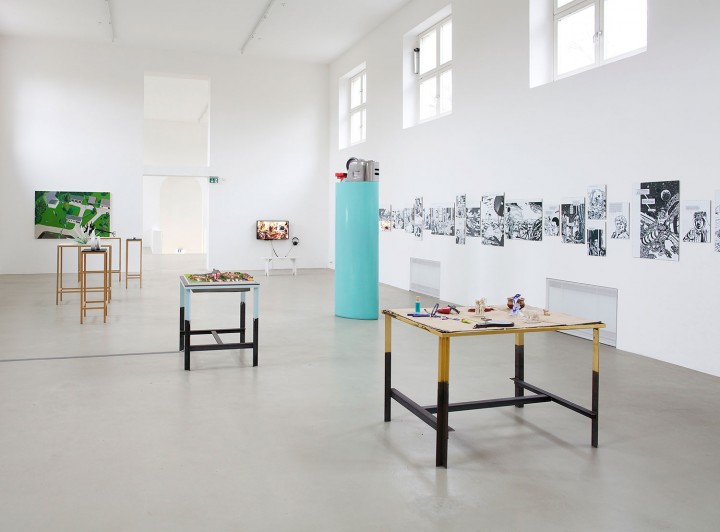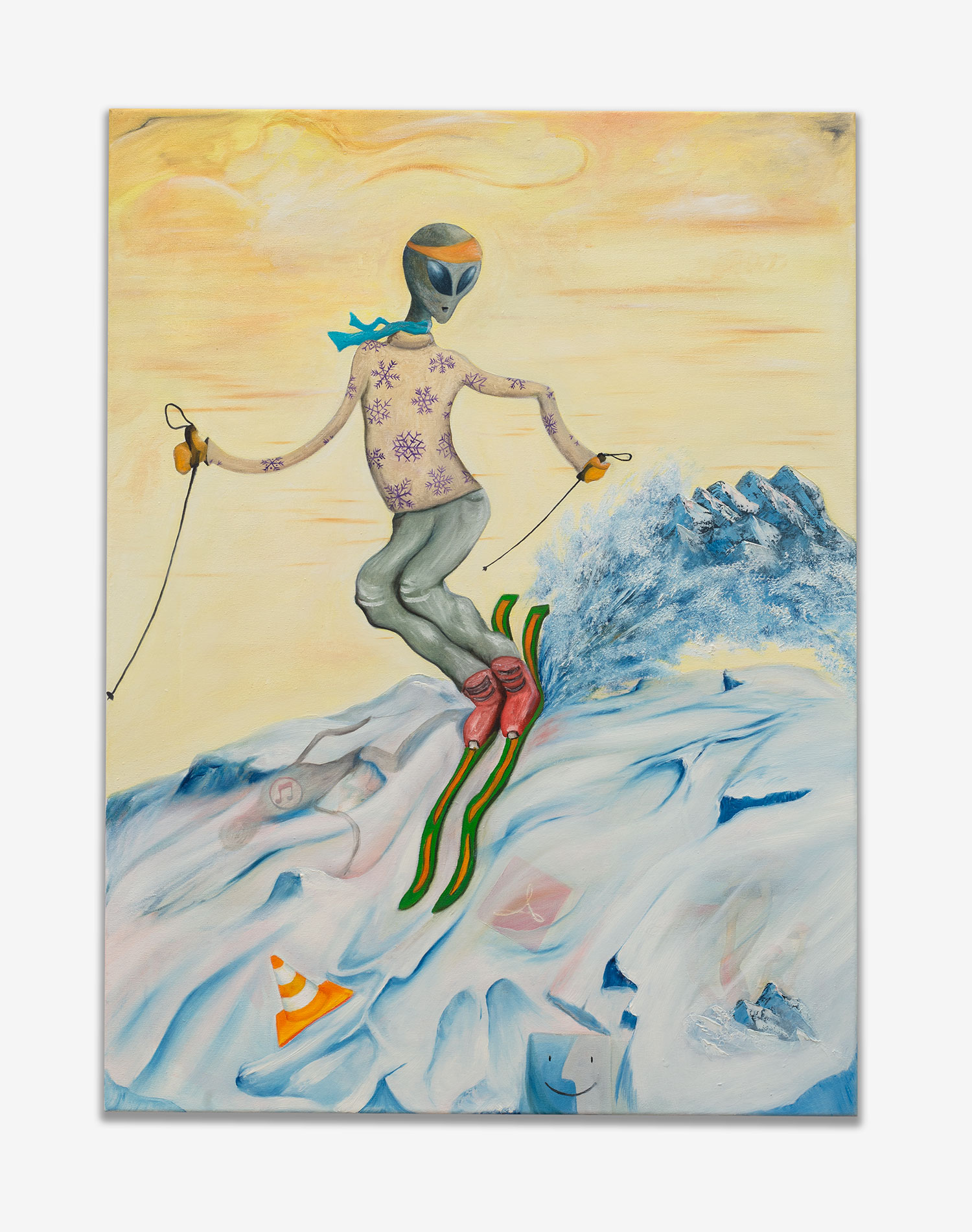The group show “Regenerate Art” examines different conditions and functions of public art projects, bringing together proposals by Chris Evans, Aleksandra Domanović, Lukas Duwenhögger, Scott King, Joanna Rajkowska and Alan Kane and Simon Periton. All works are connected by their lack of realization, yet the reason for this differs: while some present deliberately hypothetical works, functioning as a witty commentary on public art politics, works by artists such as Duwenhögger or Rajkowska have a complex story behind their unrealized state.
Joanna Rajkowska’s presentation The Peterborough Child (2012–14) shows the cancellation of a public art project commissioned by the city of Peterborough due to a religious controversy in the community. Next to original sketches and an already-manufactured information plaque, a newly produced film narrates the chronicle of events, while the real motivation behind the project’s termination remains obscure. Scott King’s Anish and Antony take Afghanistan (2014) is a brilliant commentary on the instrumentalization of artists for political regeneration purposes. In the comic strip, the UN sends public art greats Anish Kapoor and Antony Gormley to construct a public monument in the war-ridden country, in order to start its transition process into a Westernized, stable Afghanistan. With great humor King reveals the underlying cynicism in the political exploitation of public art projects.
“Regenerate Art”brings together all participating works within one single room, leaving a large part of the exhibition space deliberately empty. Emphasizing visual over archival material, each artist responds to different notions of regeneration, turning the rejected or unsolicited proposal into an analysis of its public context. This concentrated form of presentation allows for an immediate drawing of connections between the works and public art politics, meanwhile referencing the display of an architecture exhibition.


